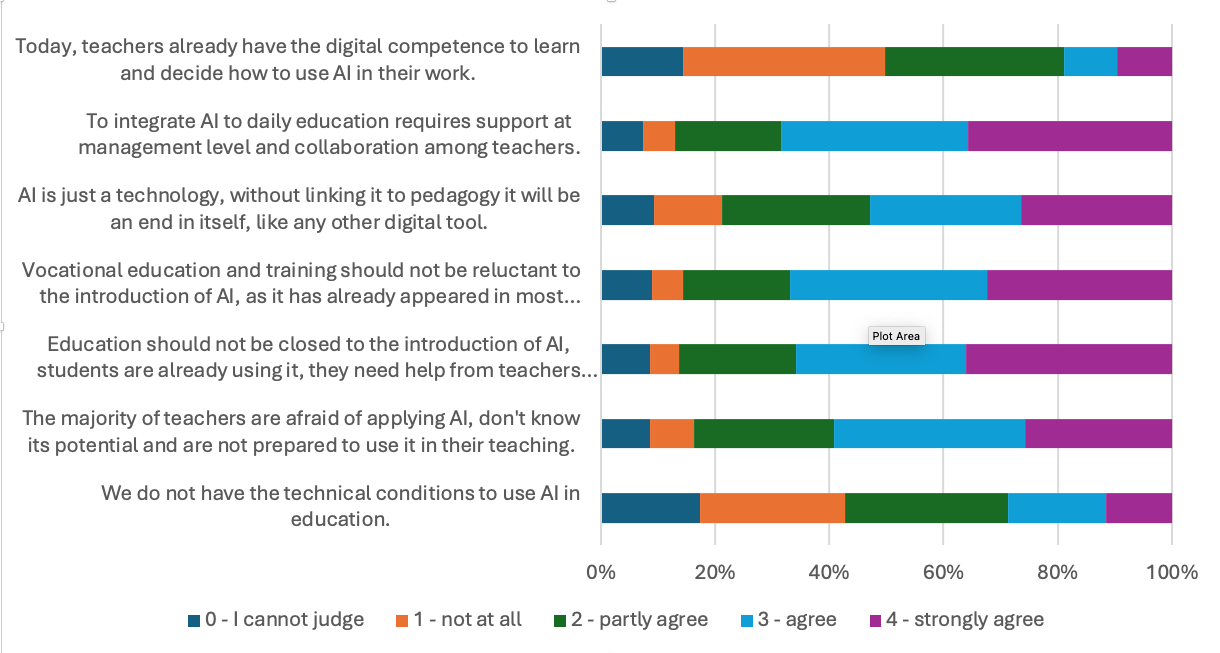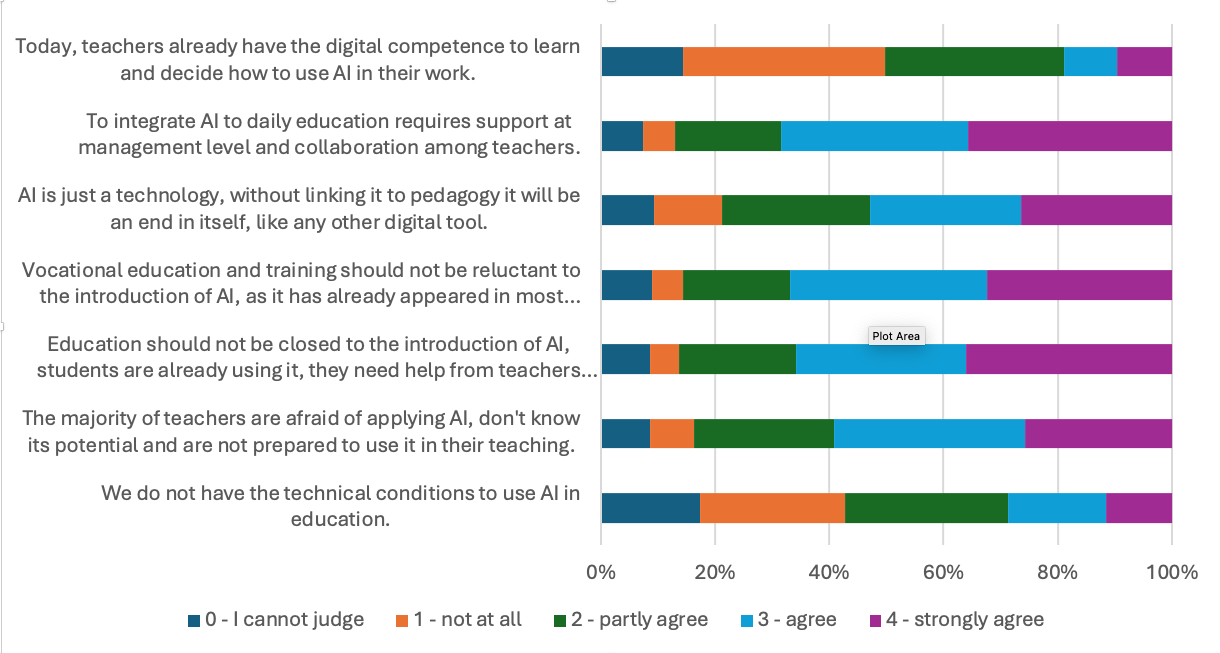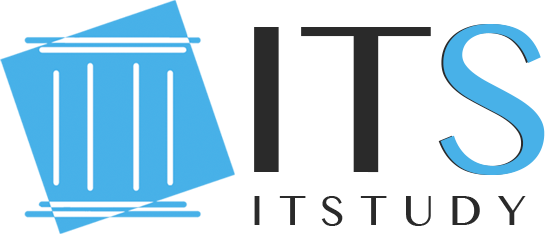
OpenQAsS: Open Source Quality Assurance System for European Vocational Education
In the OpenQAsS project, we have developed a solution to help VET institutions to perform their quality assurance tasks in line with the current European Quality Assurance Framework for Vocational Education and Training (EQAVET).
Improving the quality of learning and teaching in schools is one of the most important educational issues of our time. Numerous research and studies have addressed the question of how to translate the theoretical conclusions of quality management research into practice in schools and how to learn from good examples.
The project partners have developed a generic and scalable solution, taking advantage of modern network technologies: providing VET stakeholders with complex, open quality methods and tools, community building and practice-based training. The book on the solution is available free of charge in four European languages.
The strategic partnership has proven to be well founded and fit for purpose. Eight members from five different countries — Hungary, United Kingdom, Ireland, Italy, Spain — participated in the project.
The project was awarded a Tempus Public Foundation Award for Excellence 2018!
Project information
- Website: https://openqass.itstudy.hu/
- ID: 2014-1-HU01-KA242-002356
- Program: Erasmus+ KA2, strategic partnership
- Target groups: teachers, trainers, directors and managers of vocational training schools and enterprises; vocational training schools and enterprises; educational researchers in the field of vocational training; software developers in the OpenQAsS.org community
- Partner countries (and institutions): Hungary (iTStudy Hungary Számítástechnikai Oktató- és Kutatóközpont Kft. – coordinator; SZÁMALK-Szalézi Szakgimnázium; TREBAG Szellemi tulajdon- és Projektmenedzser Kft.), Italy (Associazione Italiana per l’Informatica ed il Calcolo Automatico; Consiglio Nazionale delle Ricerche), Spain (Universidad de Alcalá), United Kingdom (CAPDM Limited), Írország (ICS-SKILLS Certification Body Of The Irish Computer Society)
- Duration: 1 September 2014 – 31 August 2017

Project news
The project starts in September of 2025. We share here the results of our preliminary research in 2024 aimed to get clear evidence, that there is a strong need for guiding vocational teachers to understand the basic concepts of artificial intelligence and to equip them with the knowledge and skills to effectively integrate artificial intelligence (AI) into their teaching.
As part of the proposal development process, the project partnership conducted an online survey to assess vocational teachers' readiness, attitudes, and needs related to the integration of Artificial Intelligence (AI) in education.
Survey period: 17–23 July 2024 Platform: EU Survey portal Sample size: 269 valid responses Countries represented: Hungary (29.89%), Italy (35.06%), Spain (21.77%), Lithuania (12.18%) Gender distribution: 56.83% female, 42.44% male Educational background: 68.27% held a master’s degree (MSc), but only 9.96% had vocational qualifications Teaching experience: 73% had over 11 years of experience |
The primary objective of the survey was to validate the following preliminary assumptions:
Vocational teachers often face uncertainty and hold misconceptions about AI.
Teachers acknowledge the increasing importance of AI in the labor market and recognize the need to adapt accordingly.
Although students are already engaging with AI technologies, many teachers feel unprepared to incorporate them into their teaching practices.
Educators show a willingness to adopt AI in the classroom but require targeted professional development to do so effectively.

MAIN CONCLUSIONS
Teachers expressed both optimism and caution regarding AI’s role in education. While 43% agreed that AI is essential for the labor market, over 50% believed that most teachers are not yet prepared to integrate AI into their classrooms. Furthermore, teachers stressed that effective AI integration requires managerial support and teacher collaboration.
The survey results clearly justify the relevance of the project’s aims, confirming that vocational teachers need targeted support to understand and apply AI in their teaching and that there is strong interest in student-centered, AI-integrated methodologies aligned with labor market demands.
More details in the document: Secondary School Teachers' Attitudes Toward AI Integration in Teaching - Survey across four European countries.
Information: maria.hartyanyi@itstudy.hu
